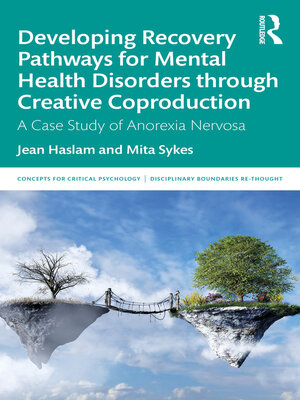Developing Recovery Pathways for Mental Health Disorders through Creative Coproduction
ebook ∣ A Case Study of Anorexia Nervosa · Concepts for Critical Psychology
By Jean Haslam

Sign up to save your library
With an OverDrive account, you can save your favorite libraries for at-a-glance information about availability. Find out more about OverDrive accounts.
Find this title in Libby, the library reading app by OverDrive.



Search for a digital library with this title
Title found at these libraries:
| Library Name | Distance |
|---|---|
| Loading... |
This book explores the potential of Creative Coproduction as a recovery tool for severe mental disorder, using case study examples of service users with anorexia nervosa. Written by authors with expertise in both mental health provision and experience of mental health services, the book advocates a creative, coproductive approach to treating mental disorders. Creative Coproduction involves significant interaction and collaboration between health and social care professionals, sufferers, recovered patients, educational establishments, families and scientists at all levels of interaction. The book emphasises the importance of working together creatively as a diverse yet cohesive team, adding to existing knowledge through every interaction and discovering and developing alternative recovery pathways. It challenges the stigma faced by people with mental health difficulties, using Foucault's concept and theory of unreason. The book further uses the neuroscience of creativity as a lens by which to identify creative characteristics and actions, discussing ways this can be harnessed to transform recovery pathways through creative practices. Centering the voices of service users and their families alongside mental health professionals, this important book will be valuable reading for advanced undergraduate and postgraduate students in health and allied sciences, mental health and social work programmes. It will also be highly relevant for health and social care professionals including mental health nurses, allied practitioners, managers of community mental health teams and community practitioners.







